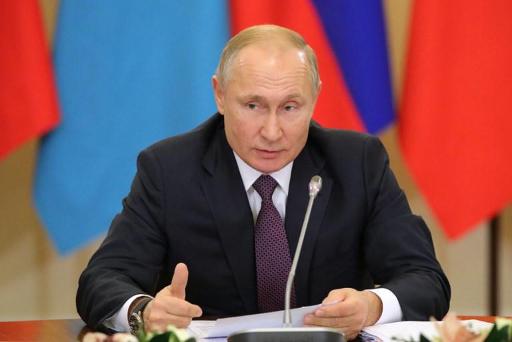Russia on Monday carried out tests to assess the safety and functionality of its Internet infrastructure even in the event of global cyber warfare.
The tests came under a controversial law that took effect in November but is seen in some quarters as aimed at censorship. Conducted in specialised areas, they assess the mechanisms for reacting to “threats” to the safe, stable functioning of Internet in Russia, the RIA Novosti agency quotes the Russian Minister of Communications as saying.
Ordinary Internet users “will not even notice that these tests are under way,” Ministry Spokesman Evgueni Novikov is quoted as saying by the public agency.
According to public Russian television Rossiya 24, tests have already been conducted at various levels for close to two weeks now. “The aim is to ensure the reliable operation of the Internet in Russia in all circumstances,” Deputy Communications Minister Alexeï Sokolov explained. "Our task is to make sure everything works at all times.”
According to the Kremlin, the law’s aim is to protect the “Russian segment” of the Internet if global servers located in Europe and the United States are disconnected, and to allow State services and the banking network, in particular, to continue functioning, even in the event of a break in connection due to war or massive cyberattacks.
In concrete terms, Internet traffic would be reorganised in such a way as to reduce the quantity of data transmitted via foreign servers.
To this end, service providers will need to install special infrastructure supplied by the authorities on their networks by 2021, the year of the next legislative elections in Russia. The nature of the infrastructure was not disclosed.
The technology will enable Russia’s telecoms watchdog Roskomnadzor, to carry out, as needed, a deep packet inspection (DPI), an analysis of all traffic passing through Russian servers and redirect this flow to specific sites or services.
Roskomnadzor will also be able to switch national traffic to its “centralised control” whenever there is a “threat to its integrity”. It will be able to block any site or content directly, a task hitherto left to the service providers with varying success.
The Russian authorities insist that this has nothing to do with isolating the Russian Internet or developing a generalised system of censorship.
“A free Internet and a sovereign Internet are concepts that are not mutually exclusive,” Russian President Vladimir said last week at his annual press conference. The law aims to make sure that “we have our resources that can be activated so that we are not cut off from the Internet,” he explained.
The Brussels Times

